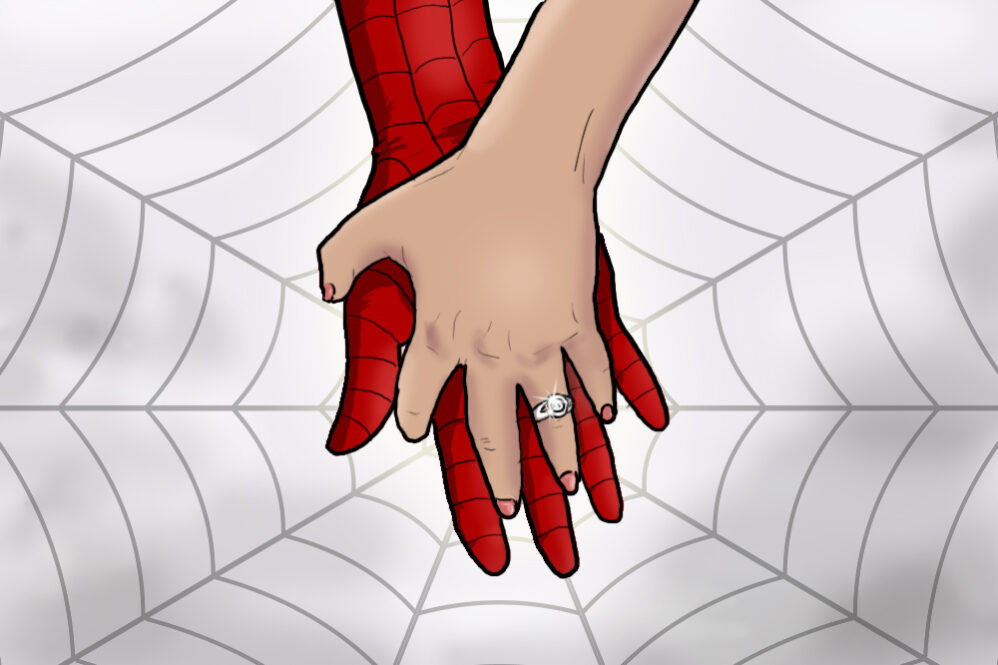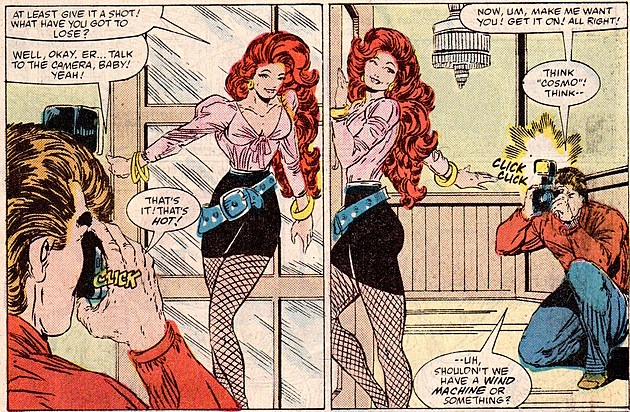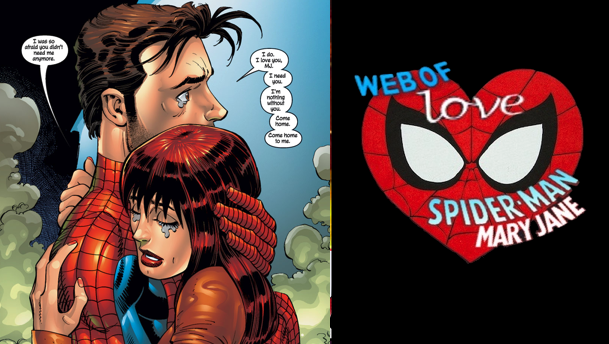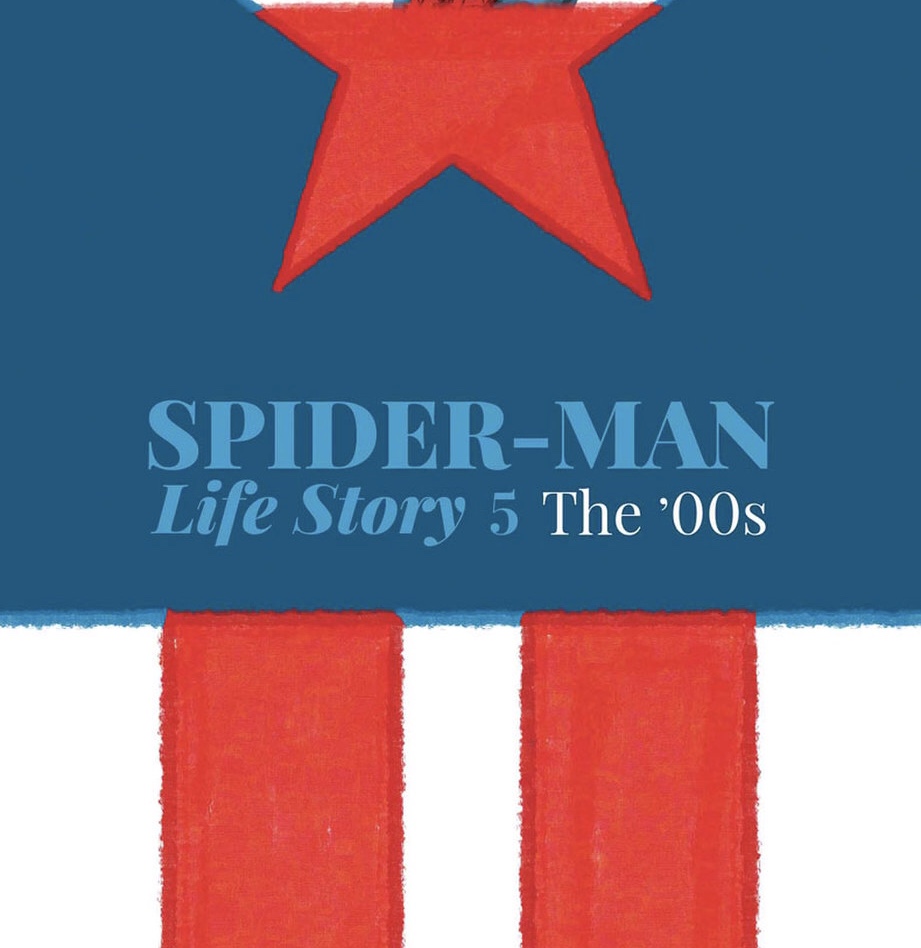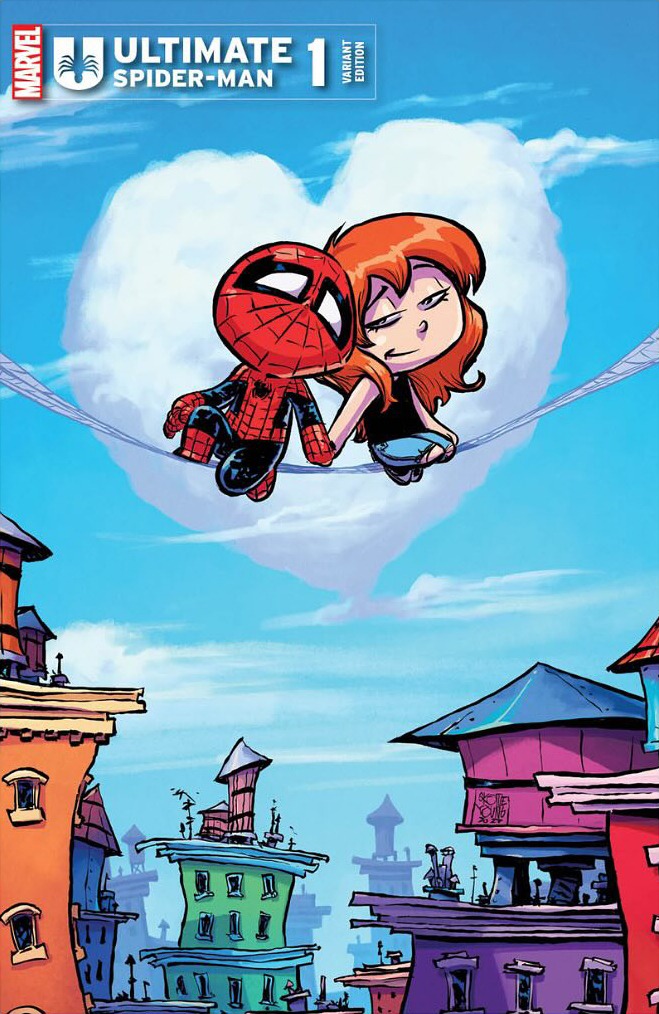
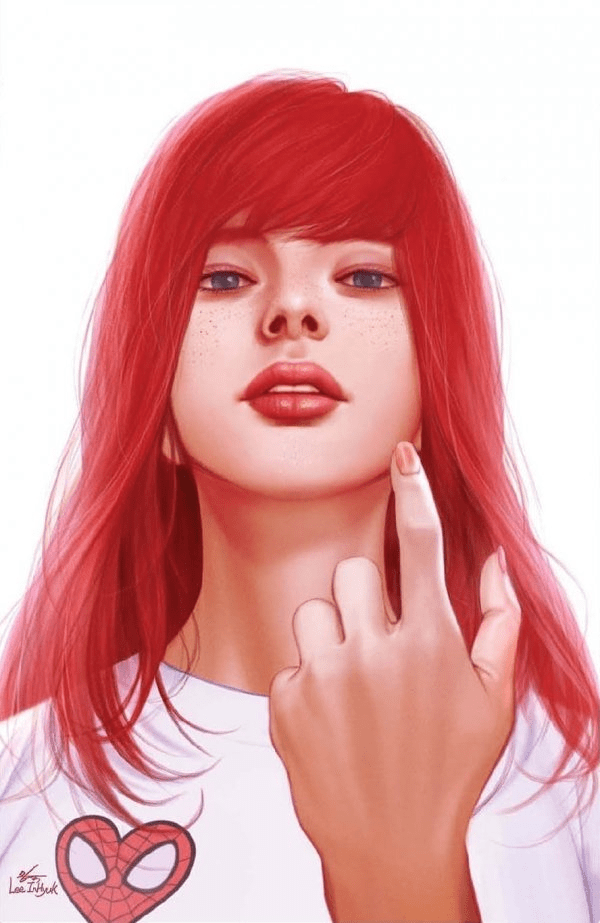
I’ll mention to readers here that I post at CBR, and that I’m familiar with that discussion. You asked Slott “So maybe you can answer, and maybe you can’t, but I would very much like to know your suggestion for how fans of the original married Peter and MJ can get things back on track.” and he responded.
Three Steps:
1. End the toxicity. Not constructive criticism, the toxicity. There’s a strain of Spider-Fandom, not all Spider-Fandom, just a very aggressive and petulant strain of Spider-Fandom that has popped up that is very rude and targeted towards the people who put out the books. This is the kind of online fandom that has even caused creators who they LIKE to stay far away from the franchise. And, as unfair as it sounds, this is a kind of fandom that has tarred online Spider-Man fandom with a broad brush. I think it’s common sense to see when certain kinds of responses and posts cross a line from honest grievances into the realm of open hostility and repeated personal attacks. And, in truth, those kinds of comments are not treated with any type of seriousness by the people who are empowered to make any meaningful change. They are perceived simply for what they are– online tantrums. When they cross into that territory, those opinions are completely ignored. As fans who are NOT like that, hold your ground and make your opinions heard while being civil– and talking to people (those who read the book, make the book, or just love the franchise) the way you would like to be talked to. You don’t have to be positive or supportive, you can still be critical and talk about what you are not enjoying, just use common sense and engage in a way that you would want to be engaged with.
2. USE positivity and massive letter writing campaigns to try to get Marvel to generate the book you *want* in an alt-dimension or timeline. PUSH for a revival of SPIDER-GIRL, MR. & MRS. SPIDER-MAN or RENEW YOUR VOWS. Speak with one, unified, POSITIVE voice for a project like that.
3. If and when you CAN get that then as one, UNIFIED and POSITIVE voice, get *that* book to regularly, month-in-and-month-out, sell HIGHER than the core continuity. Vote with your wallets and show that this majority of Spider-Man fans who feel exactly the way you do will spend their hard earned bucks to make that the overwhelming version that will make Marvel MORE money. That is the language that Marvel understands.
One more time:
1. Help end and/or drastically diminish the specific strain of negativity in online Spider-Fandom.
2. Use overwhelming positivity and positive engagement to lobby for the exact book you want, but set in an alt-time or an alt-dimension.
3. Support that title regularly, month-in-and-month-out, far MORE than the mainstream alternative.
There. That’s a plan that would make sense.
At this point, you decided to focus on getting fans to support a return of one of the earlier titles with a married Spider-Man, and launched a poll on CBR within a few hours.
In retrospect, it seems obvious that Slott knew something you and I did not: Jonathan Hickman and Marco Checchetto had a project coming out from Marvel.
So, how did you react to the Ultimate Spider-Man announcement? How did it change your plans? And do you like Jonathan Hickman and Marco Checchetto as a creative team?
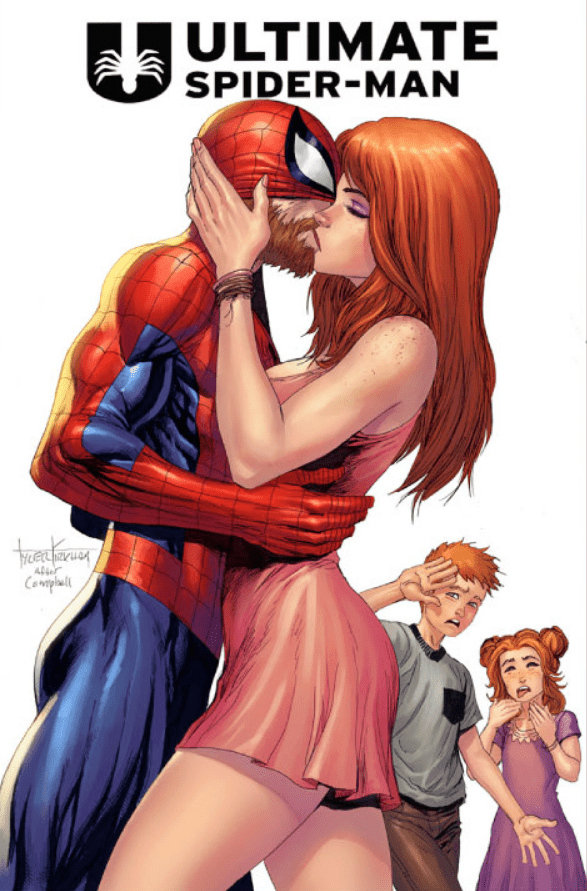
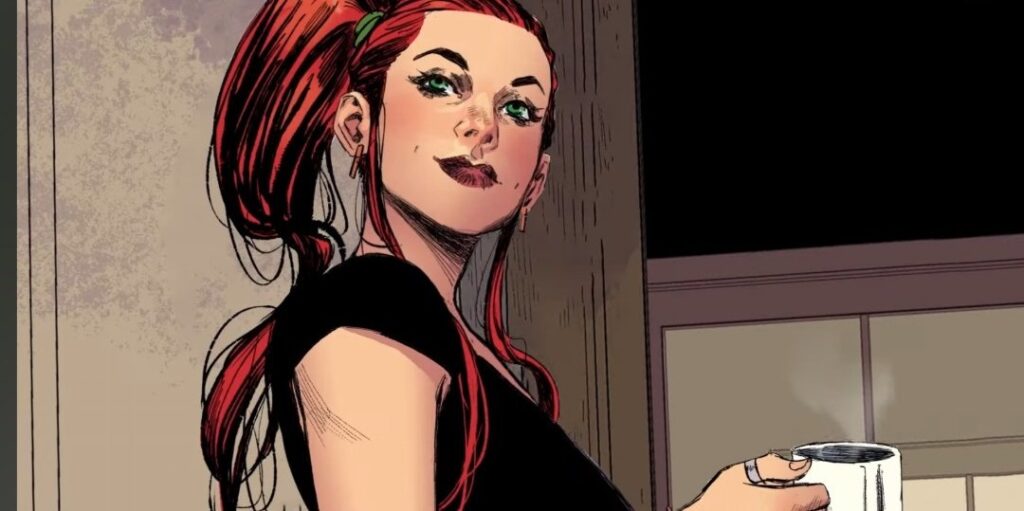
I’m excited for Jonathan Hickman and Marco Checchetto as a creative team. Hickman’s work on Fantastic Four, X-Men, Avengers and Secret Wars (with various Spider-Man appearances in those titles) all display a bold, high-concept approach to storycrafting that I greatly admire. He often introduces large-scale themes that often can be disorientating at first but he trusts his readers to figure things out for themselves, all while never failing to explore the personal and intimate relationships that fuel the people involved. I’m expecting a lot of surprises with the freedom it seems he’s been given for USM, and I hope fellow readers aren’t expecting him to play it safe and to keep an open mind. I’m expecting there will be a lot of meat to chew on.
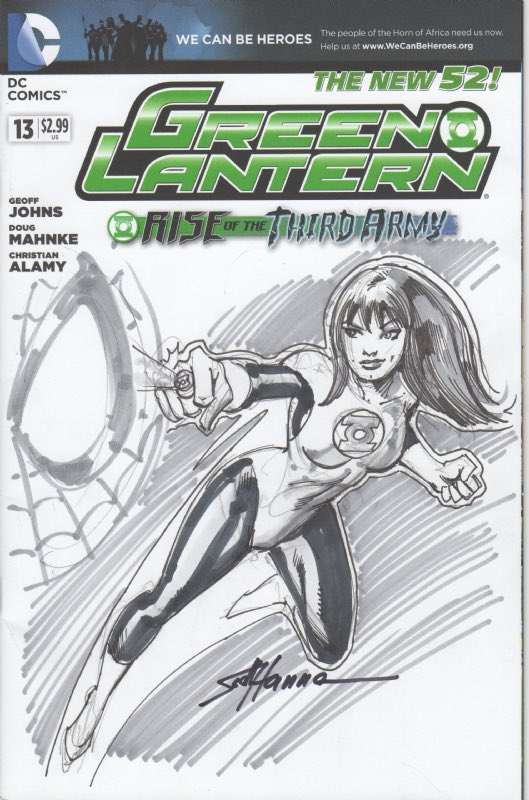
What lessons do you take from HEAT? What did they do that’s worth borrowing from, and what are the cautionary tales?
Nick: I could talk about HEAT for hours. I share similar sentiments for the Snyder-Cut Movement. Ultimate, despite my own misgivings on how some of it was handled, they effectively got what they wanted. HEAT never stopped carrying the torch for Hal’s return and we can safely say that Hal is back. Mission accomplished. What I’m impressed with most is how they kept public awareness of the character going strong, even as DC pushed back against their requests for countless years. And they were pervasive and ambitious in their outreach. While it’s hard to say how instrumental they were in getting Hal back, I certainly believe their vocal and organized campaign for their hero helped keep his fire burning so that when DC’s revival hit there was a hungry and excited audience ready to check it out. They got OUT there and made themselves known and then put their money where their mouths were to help make it an even bigger success once their main goal was realized. We’re still talking about them to this day.
Where things perhaps went astray – and there is far more nuance here than I can cover – is how despite their stated policies and intentions (e.g. claiming that they didn’t condone offensive acts or letters) HEAT didn’t start out nearly as cordial (it was the “Hal’s Emerald ATTACK Team” before the more-acceptable “Hal’s Emerald ADVANCE Team”) reports of targeted harassment were rampant, and writers like Ron Marz shared that prominently stated goals on their membership cards outright called for his firing. They didn’t endear themselves to many actually making the comics and the pivot to more civil discourse came perhaps a bit too late.
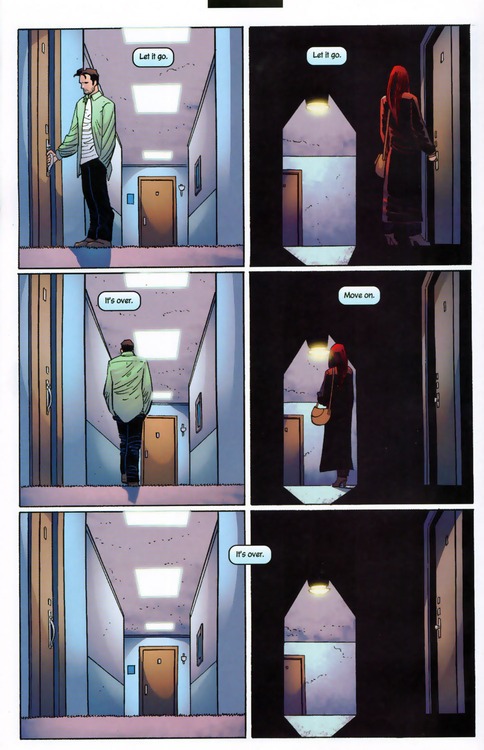
Controlling the narrative is VITAL for any grassroots movement, and emphasizing respectful, positive outreach at this stage is paramount. Most of the readers and fans who’ve joined this campaign do so out of a passionate love for the characters, but many bring with them a lot of anger, resentment, and sadness. Most people aren’t professional writers capable of expressing their feelings in a nuanced way and lash out, and that can very much fall into the trap of toxicity, harassment, and negativity. Channeling that into something good and emphasizing what made these characters and stories so special to us in the first place I find a significantly more enticing approach. We’re prioritizing that. By all means, be upset and be honest in how a story is making you feel, but it serves no one’s benefit to poke the eyes of the very people with the power to change and improve things. It’s significantly harder to rebuild a bridge once it’s burned down.
Ron Marz is still out there making comics. If “One More Day” were reversed tomorrow, I imagine the individuals working on Amazing Spider-Man currently will still continue to write stories for the Wall-Crawler for years to come.
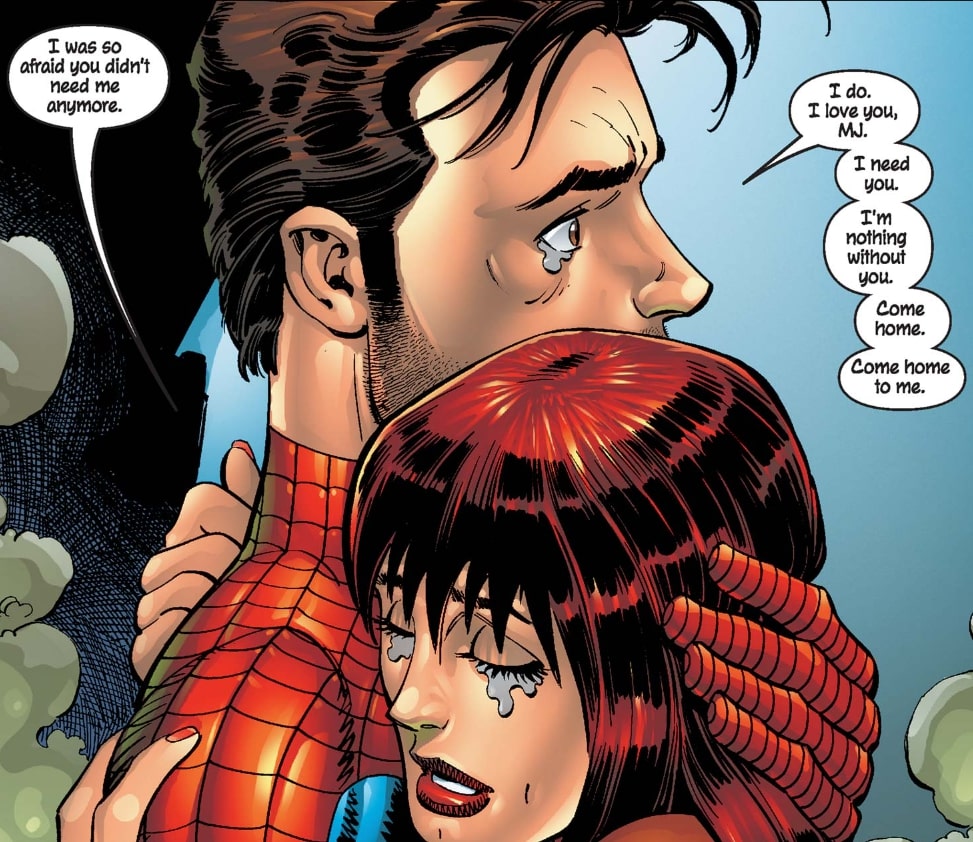
These are some good points. I think there is sometimes a desire for fans of a character who don’t like the current direction to poke the eyes of the people in charge, and that’s not going to help change anything. It avoids win-win situations, where everybody gets what they want. Hal Jordan eventually returned as Green Lantern, but Ron Marz kept working in comics and Kyle Rayner popped up in some good comics including Tom King and Barnaby Bagenda’s Omega Men.
As for your comics movement, what is your Discord? How do people join? What do they get out of it when they do?
Nick: Ultimately, we settled on calling ourselves the “Spider-Fam” community, as it mutually celebrates the kind of Spider-Man stories we value – whether it be marriage, parenthood, the next generation of heroes, siblings, etc. – as well the community itself, this group of kindred spirits who needed a place to sound off, share excitement, and feel valued as individuals.
“How do people join?” It’s as simple as clicking the Invite Link. We’re open to anyone and everyone with even a cursory interest in Spider-Man and his amazing cast. We just ask to please abide by the rules and keep things polite.
As for what do they get out of it when they do join, hopefully, we all get Spider-Man’s marriage back! Or at the very least stories that break the cycle and allow these characters to experience permanent growth and maturation that respects what came before. Beyond that, everyone thus far has been passionate in sharing their love for the characters—in their art, their music, their writing—and fostering a real sense of community. We’re constantly brainstorming where to take this, and it’s my adamant hope that others can take this much further than my time and means allow. I’m excited to see what else we can come up with. Maybe I could borrow a page from HEAT and create membership cards!
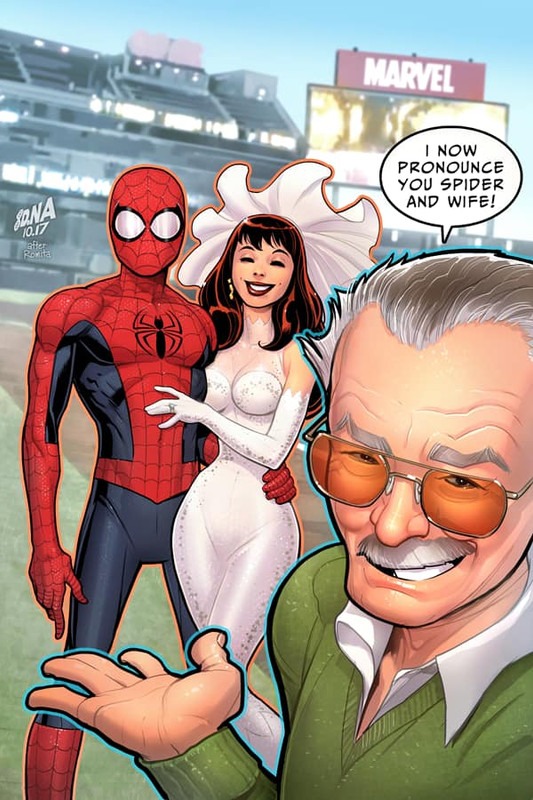
The new Ultimate Spider-Man is launching in a few days. What is your goal with that?
What’s the next step for Spider-Fam if you don’t like Hickman and Chechetto’s Ultimate Spider-Man?
Nick: Based on what we’ve been told, we’re throwing our support behind the new Ultimate Spider-Man and hoping it’ll take off. The original Ultimate Spider-Man was a landmark run that changed the focus and trajectory of the character for many years, both internally at Marvel and with the type of media fans were given and consuming. I doubt we’d have so many high school-focused Peter Parker shows and movies without it. Now the pendulum has started to swing the opposite direction and we’re seeing more mature, adult Peter Parkers in media again, so if USM has even half the same impact as its predecessor then I would expect the mainline book to follow suit. Per Slott’s own advisement, a pro-marriage AU outselling the core book consistently sends a stronger message than any loud online rant ever could.
As for the next step for Spider-Fam if I don’t like Hickman and Chechetto’s Ultimate Spider-Man, the campaign launched before the book was announced, so USM was always a boon to what was already gaining traction. While I hope for the best, if the book proves a disappointment then I won’t be someone to mandate buying something you dislike in the hopes an unrelated book benefits from it, but that’s something every reader has to determine for themselves. Ultimate Spider-Man, like any other book, has to pull its weight and earn its place on readers’ must-read lists. Readers, in turn, have to accept this won’t be a perfect balm for all that ails them. I know I have purchased indie games and smaller-scale comics that didn’t always resonate with me personally, but I value supporting the type of genres and projects I want to see more of. Every issue is someone’s first comic, so if nothing else I hope it can introduce those readers to a much wider world of Spider-Man and comics in general.
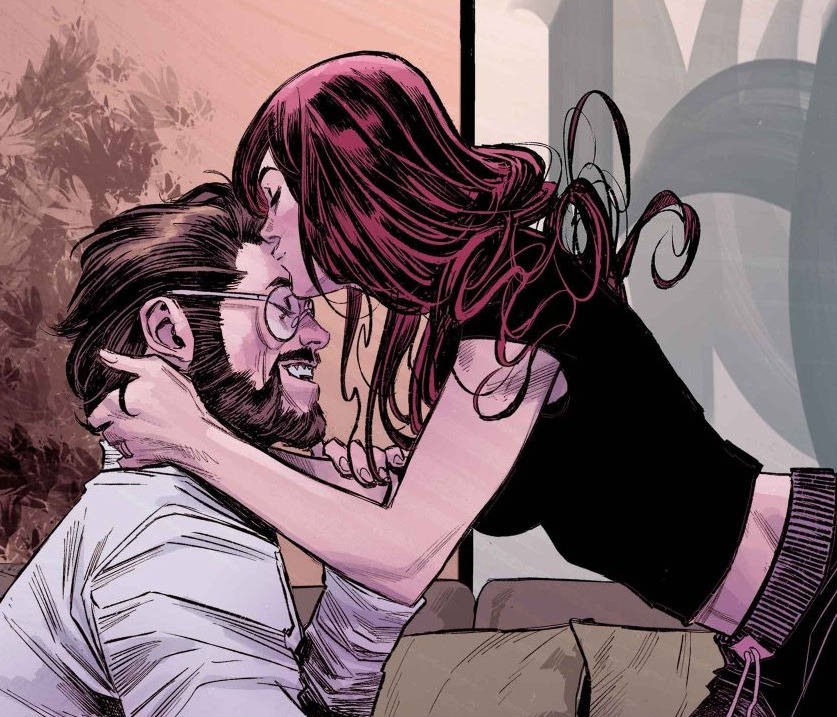
You mentioned that you like permanent growth and maturation in comics. This shows a difference in visions for the Marvel Universe between the illusion of change—where characters won’t change too much—and a commitment to change approach. From Marvel’s perspective, they will have concerns about characters becoming different from what readers and writers are used to.
One worry for Marvel is that they don’t want to go too far from the core of what made Spider-Man popular, since they want to keep the comics going as long as possible. Their view would be “Why ruin a good thing?” Every development adds up, and some of these would also be difficult to reverse if it doesn’t connect with readers.
Obviously, there are ways to tell Spider-Man stories outside the classic Marvel Universe (hell, we’re talking about the upcoming Ultimate book) but another worry for Marvel would be the perception that what happens to the original Spider-Man could lock in other versions. If Peter & Mary Jane are endgame in the original Marvel Universe, they’ll be endgame in a 2032 relaunch. This isn’t limited to Peter’s family life. If the events of Superior Spider-Man eventually lead to Dr Octopus’s reformation, will there always be the perception that he’s not that bad, and that his story will eventually end with him going back to being a force for good? To connect to the Spider-Verse movies, will a commitment to change approach lead to more canon events?
A counterpoint would be that the movies and massively successful video games have exposed audiences to versions of Spider-Man beyond the original, who carry equal weight, so that fans could accept differences in future retellings.
If Marvel were to restore the marriage in the comics, what do you think that would say going forward about the 616 Spider-Man and later versions of the character?
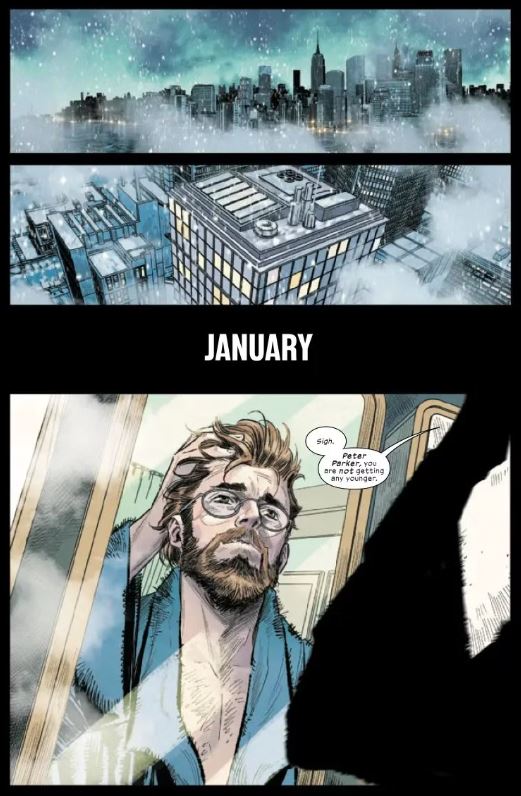
Nick: That’s a lot to chew on, and I understand both sides and both perspectives. The demands of writers wishing to craft a good narrative are often at odds with editorial and businessmen wishing to preserve a winning-but-safe formula indefinitely.
You bring up the Marvel policy of “The illusion of change” where characters won’t change too much. I’ve heard people at Marvel and on the Spider-Man books themselves use the term before. Some have even attributed it to Stan Lee. If anything, I agree more with Stan Lee’s response to that.
“I don’t recall ever emphasizing the ‘illusion of change’ or even using that phrase, though I might well have. As for the changes I did make, it was probably because I thought the series needed something to inject new life into it, yet something that wouldn’t be out of character for our principals. It’s difficult to have hard-and-fast rules when you’re writing. Sometimes something hits you which you think would be a great idea, even if it goes against certain preconceived notions, or guidelines, you might have had. I tried to be as flexible as possible when writing about our characters.”
With time and distance, the heroes that are beloved for a specific reason or incarnation often can be viewed as regressive or constrained. If comics only adhered to a mere “illusion of change” and only stuck with the current, winning formula, then the Batman of 60 years ago would still be a campy, goofy character best known for the Adam West show and Dick Grayson would eternally be stuck as his preteen sidekick in pixie boots. Lois Lane would be this insufferable love interest whose world exclusively revolved around trying to marry Superman with hairbrained schemes. Wally West would be trapped as “Kid Flash” and never allowed to mature into the grown man who became THE Flash, with a wife and three kids to take care of. The X-Men would still be in high school, Wolverine would still have no idea what his real name is, Moon Knight wouldn’t have dissociative identity disorder, Magneto would still be leading the Brotherhood of Evil Mutants as a remorseless villain, and Peter Parker would still be a kid in high school pining after Betty Brant.
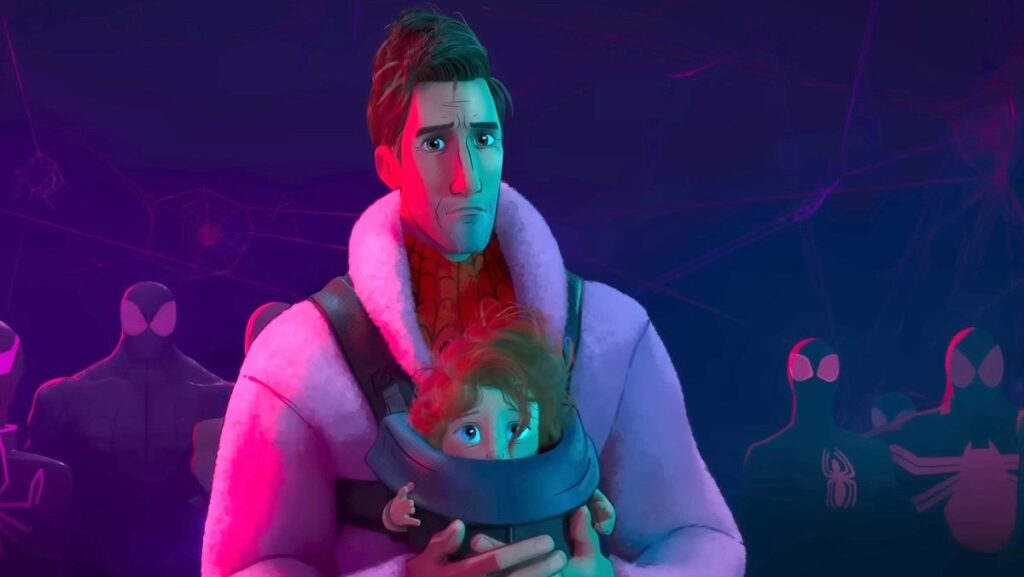
There is a fear of watching something we’re familiar with change and grow into something new. Not every story beat will hit. Not every step is in the right direction. But, in my opinion, nothing stagnates a creative and boundless medium more than the fear of organic change. J.M. DeMatteis on his blog last year mentioned that these characters take on a life of their own, with their own wants and desires. Good writers and stories attune to this and guide the story where it needs to be. By the logic of the “illusion of change” Mary Jane never should have been a serious contender for Peter’s heart, but interviews with Lee, Romita Sr., Conway, and others talk openly about how the fans resonated with her and related to her in greater number than anyone else, and that the book came alive with her presence. That wasn’t the intent, but by leaning in on that they shaped the book in a way that she’s now routinely revered as one of the most beloved comic book characters of all time (CBR recently ranked her as the only civilian Marvel character in their top 50 Marvel characters list, for instance.) Being afraid of embracing change would have deprived the world of countless iconic Spider-Man stories and characters.
So let’s address your question. If Marvel were to restore the marriage in the comics, what do I think that would say going forward about the 616 Spider-Man and later versions of the character? Restoring the marriage is not a magic bullet to the comic’s problems. However, what it represented and still represents is the willingness to let these characters—as DeMatteis stated—truly take on a life of their own and be more than cynical corporate mascots frozen in amber to be trotted out for a quick buck. Per DeMatteis, “No matter how much people may try, Pete and MJ WANT to be together and they’ll make it happen. And I’m totally with them on that!”
Re-reading the history of this character has shown readers asking for and celebrating Peter’s growth over the years, encouraging Marvel’s willingness to let this kid grow up, graduate high school, move out of Aunt May’s house, go to college, get a job, pay his taxes, fall in love, graduate college, get married, etc. The idea that readers would flee if the character took steps forward and even changed or evolved with the times I feel is without merit. Marvel established him as the most exciting superhero of the 60s and 70s, which the good folks at Marvel constantly champion as their “golden era”, yet it’s the era of ceaseless growth.
I think allowing the characters to reclaim what was stolen from them and obtain the victory they crave, together, to face an uncertain future is the most quintessential kind of Spider-Man story you can tell, because more than anything it lets me believe that anything truly can happen again, rather than simply and cynically wait for Marvel to cycle through the same “illusion of change” inconsequential storylines, no matter how entertaining they might be in a bubble. I know I personally don’t want the Spider-Man of my youth, even a married one; I want a Spider-Man that’s grown BEYOND that. I hope I get to read about him one day.
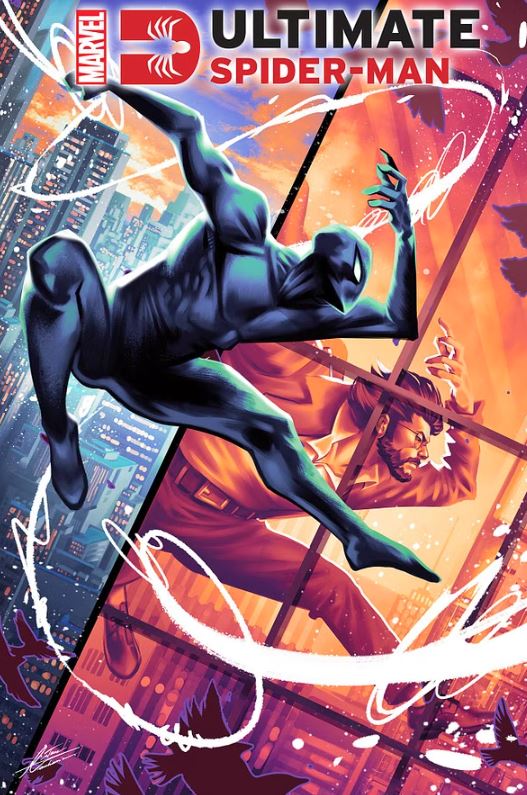
Where do you envision it could go? Some developments are to be expected if the series progresses at real time, or anything slower. There would likely have to be at least a decade of comics about Peter and MJ as parents of kids too young to be nepo baby superheroes, and Marvel will have to make that as compelling as a more familiar take on the character.
It seems that you don’t want Spider-Man to calcify at some status quo like being married and childless, or married with young kids. Could it go too far? Or do you think we’re generations away from comics in which Peter & MJ hit fifty, and audiences will accept that just as much as they do movies with Jennifer Lopez and Ben Affleck, who are in their early 50s and culturally relevant?
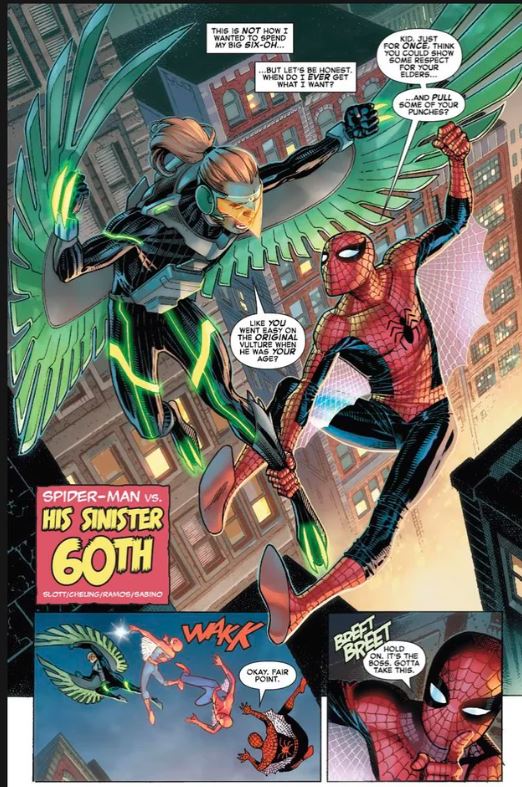
Nick: Envisioning the future is typically a task I leave to the writers. Everyone has their own “vision” for Spider-Man’s future – whether that be five years from now, ten years, twenty years, single, married, a father, retired, dying in a blaze of glory, etc. I think it’s mostly important that he HAS a future, one that isn’t constrained to the same song-and-dance I was seeing readers pushing against over 50 years ago. I’m sure if I was entrusted with the book, I would do some pretty wild things myself. It’s fun to speculate over.
Cultural sensibilities change over time; comics should have the flexibility to adapt accordingly. I’m a pretty staunch advocate that you can sell a new “status quo” with enough talent, development, and positive reception. Marvel itself would likely hit the “reboot” button before Peter & MJ get to their fifties, but the character is beloved and enduring enough that I think a great many readers would be thrilled to stick around reading their adventures long into their forties and fifties. I’ve read some at Marvel insist upon a certain “spirit” of the character that should always embrace a coming-of-age story dealing with the complexities of youth and burgeoning adulthood, but I see that “spirit” better manifested in the new generation of heroes gracing the printed pages these days. Characters like Kamala and Miles remind me far more of those classic Lee/Ditko stories than anything I’ve read in ASM in decades, and they won’t be the last, I’m sure. Maybe one day Peter and MJ will have kids in the 616 stick around that continue that legacy, just like Superman, Flash, Wolverine, and many others. As it stands, I think there’s at least a market for it, and a hungry one at that. I’m as curious as I’m sure Marvel is to see how fans respond to stories that seem to run counter to their current stance on the main book.
The only thing I am certain of is that Spider-Man will endure. It’s what he’s always been best at.
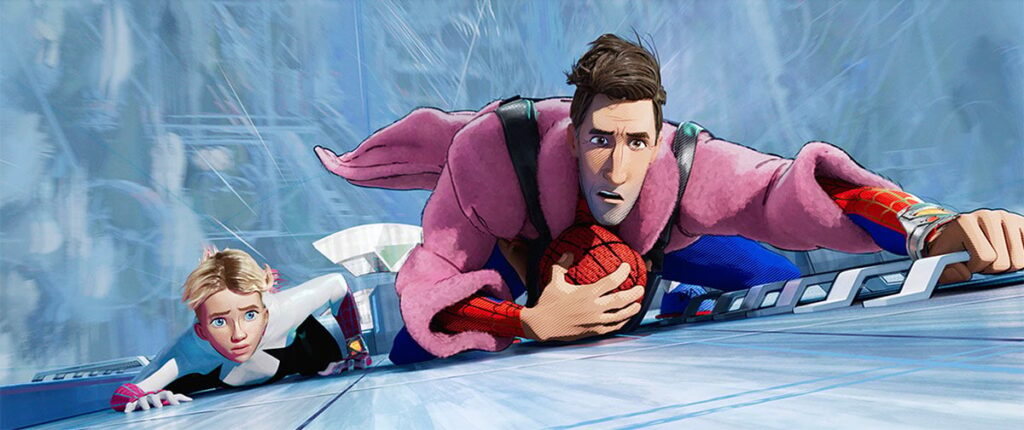
At this point, we don’t know how successful this version of Ultimate Spider-Man will be. It could be a critical and sales smash like All-Star Superman or the original Ultimate Spider-Man. It could be a modest hit. It could flop. Jonathan Hickman might leave it halfway as he did The Ultimates, or the Dying and the Dead. Once we have sales data, people on different sides will be motivated to try to argue that it proves their point, but we can talk about it more abstractly at the moment.
What are you looking for in terms of sales and critical reception? What type of success would help the argument that Peter Parker and Mary Jane should be married in the regular comics? I’ll make the caveat that if a story about Peter as a family man in his thirties gaining super-powers doesn’t connect with many readers, it doesn’t mean there’s a lack of interest in a different status quo of Peter Parker as a family man who gained super-powers two decades earlier. But is there a point at which people who currently think it makes more sense from a business perspective for Peter not to be a family man in the comics should reconsider that view?
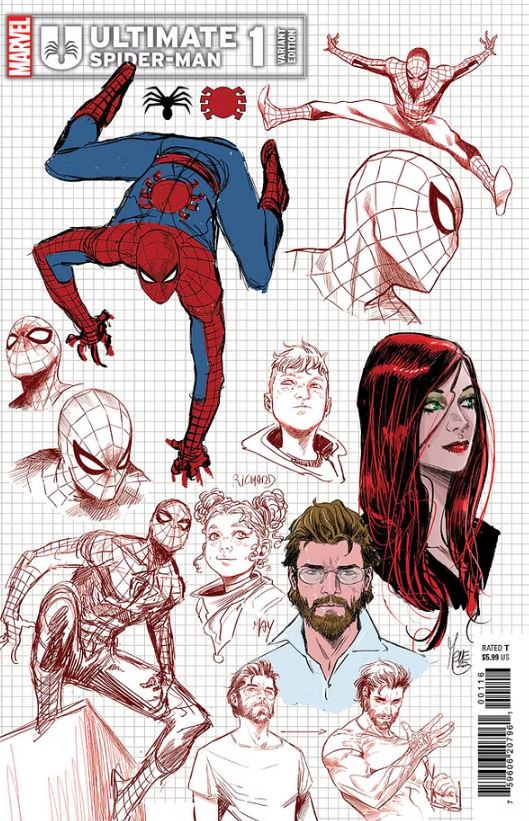
Nick: A better question would be what Marvel would be looking for, as they notoriously keep their metrics close to the chest. I’ve mentioned before, the Peter and Mary Jane marriage was hardly a financial failure; it endured for two decades, over a thousand issues, with some of the best-selling and most critically acclaimed stories in the character’s history. And since it was haphazardly retconned, there has been a steady stream of married Peter content, from Renew Your Vows to Life Story to Bloodline to Spider-verse to Ultimate.
Marvel clearly believes there is a market here, but feel that 616 shouldn’t be that guy (again). Naturally, I and many other readers and writers can disagree. Dan Slott and others have suggested that supporting an AU married book in numbers that exceed Amazing Spider-Man‘s monthly tallies—consistently—is the strongest message fans can send. At the end of the day, Marvel is a business and they’ll follow the money.
A good writer and editor should always be open to reconsidering their views. The world is forever evolving, and trying to freeze a story in place to recapture the magic of something you read as a kid 40-50 years ago will eventually breed stagnation and apathy. I know my own views on a great many things have changed as I’ve come to understand the world around me has changed since my youth.
My objective opinion is that I look at the current comic book landscape and I see dozens of other heroes starting families or growing up and it hasn’t dented their appeal with younger readers whatsoever. If all comic characters had adopted the idea that they need to regress back to status quos of a bygone era, the landscape would be in worse shape and readers would be poorer for it. Spider-Man was once the leader of the pack for growing up and evolving and maturing, and now he’s the worst example of a company being unwilling to let that happen. The character is still far too good and too popular to fail, but rather than scare Marvel at the thought of taking risks to move his story forward, it should encourage them that no matter what the character is stronger than any of those risks. I think Ultimate Spider-Man will be a great test to see if that philosophy pans out.
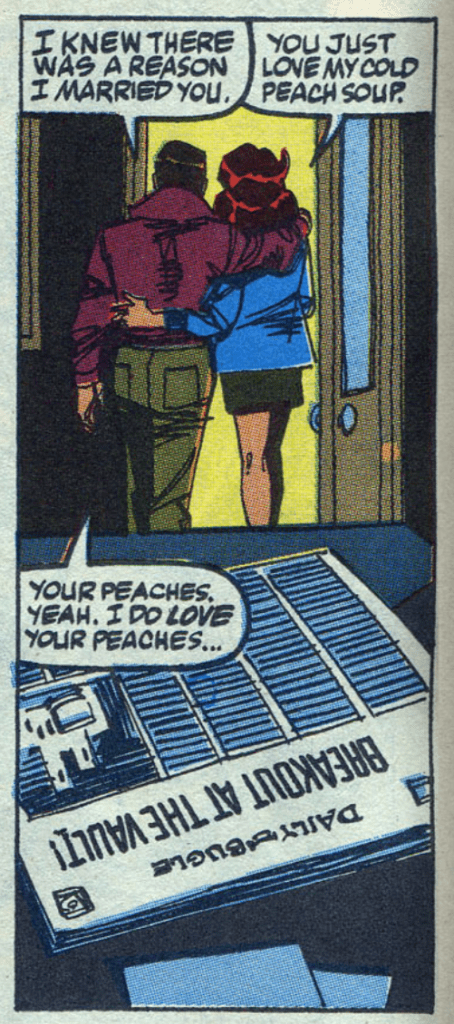
And the final question: Is there anything that I didn’t ask that you think is important? Is there anything else Spider-Man fans who just went through the 5,000+ words of this article should know?
Nick: Probably the most important thing I want everyone to remember—fans and creators alike—is to take the lessons imparted on us by these heroes and apply them. Not to sound preachy, but I’m trying to run this campaign in a way that does respect to the character’s own goodness and positivity. I believe in the power of the comic medium to do great good, and I’ve seen and experienced it first-hand. No matter our disagreements, I think the strongest lessons the best versions of the Parkers could tell us is to never give up, never succumb to anger or despair, and always strive for a better tomorrow with the help of others. We love comics, but should never lose sight of the humanity outside our windows or the human efforts that go into bringing us these adventures. I hope our efforts, regardless of outcome, result in a net positive outcome for all involved.
Thanks again to Nick AKA Garlador. Once again, the link to the Discord is…

